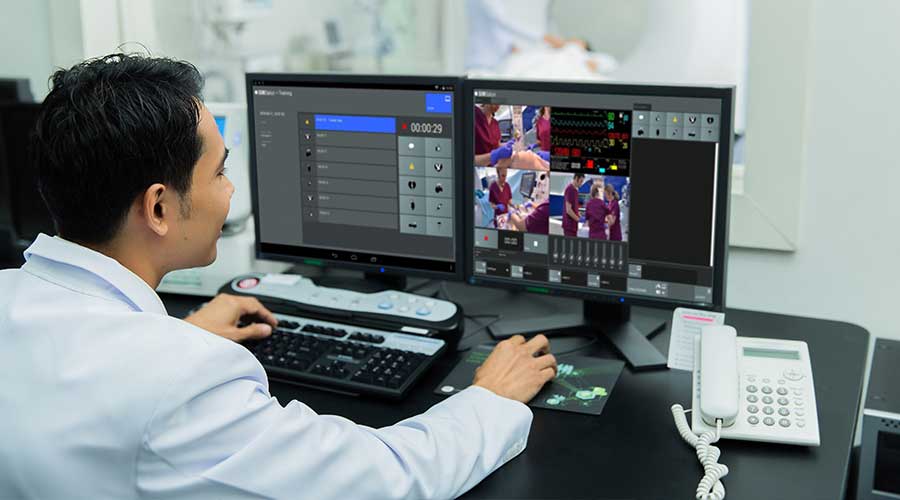
4 Things Every Sim Tech Should Know
Does your list of responsibilities seem to grow every day? Every organization’s simulation program is a little different and without an industry-wide standard for the role of simulation technician or operations manager, deciding what knowledge, skills, and abilities are most important can be a little daunting. The simulation experts at Level 3 Audiovisual recently weighed in on this topic during the webinar, “10 Things Your Sim Tech Should Know” but—spoiler alert—there are four critical skills every sim tech should have.
SUCCESSFUL SIM TECHS MASTER THESE FOUR SKILLS
- How to maintain equipment and troubleshoot. Whether it’s cleaning the simulation manikins or resolving a simple issue with your simulation AV equipment, you need to solve basic problems without elevating them to the IT department or equipment manufacturer. To increase their technical skill, Brandon Phillips, Simulation Technology and Operations Specialist at Level 3 Audiovisual recommends that sim techs befriend the tech support team and pump them for information whenever they can. The farther you get in resolving an issue before they call in tech support, the happier tech support will be and the faster the problem will get solved.
- How to use correct medical terminology. Simulation technicians might not be medical professionals, but they still work in a medical environment so understanding medical terminology is critical. Newton Buchanan, Simulation Technology and Operations Specialist at Level 3 Audiovisual, suggests that the main role of a sim tech is to help students achieve their learning goals. So, if students are trying to master intubation, you should know what that means so you can help students successfully complete the simulation exercise.
- How to organize equipment. Simulation centers deal with a lot of inventory, from big items like manikins and defibrillators to small ones like IVs, bandages, and fake medicine. You need to keep track of it all so you can facilitate successful simulations. Whether you organize equipment by type or usage, and whether you prefer color coding or alphabetizing, your program will struggle if you don’t have a plan for keeping your equipment organized and accessible as needed.
- How to communicate. While technical and organizational skills will help you hit the ground running, both Phillips and Buchanan agree the most important sim tech skill is communication. While there are medical terminology classes you can take to increase medical vocabulary, you can pick up other kinds of knowledge simply from asking questions.
You also need to interact with everyone from doctors and nurses to IT and tech support to other simulation technicians and operations specialists to do your job and do it well. In the end, simulation technicians are in the customer service business, and you need the confidence and communication skills that business demands.
Next Steps
Want to know what other tips our healthcare simulation experts shared? Watch the “10 Things Your Sim Tech Should Know” webinar today.
Have questions? Reach out to us here or click the chatbox below to connect instantly. We look forward to talking with you.

